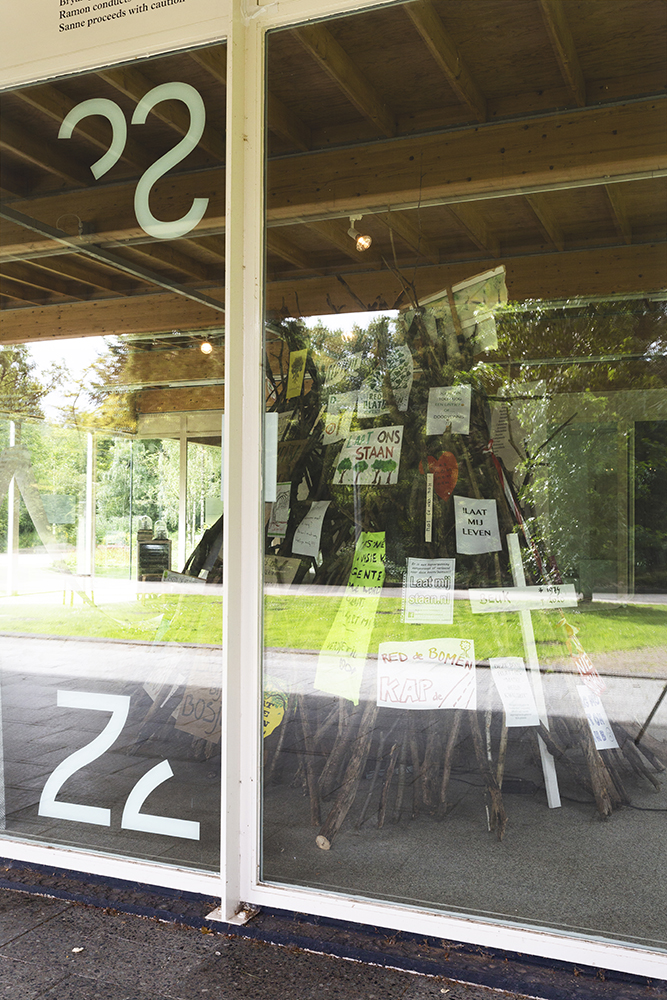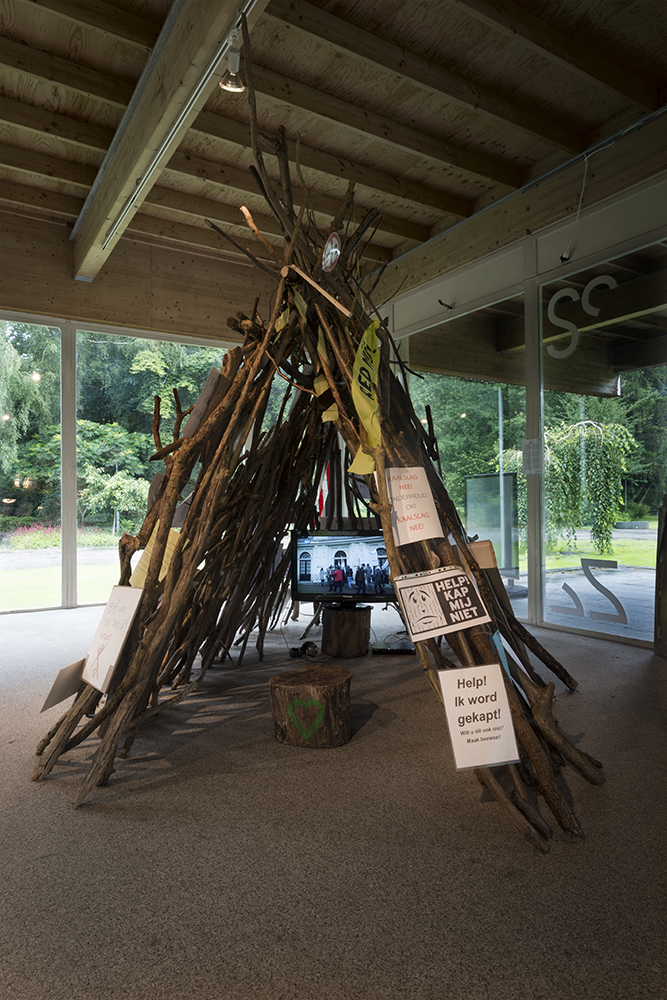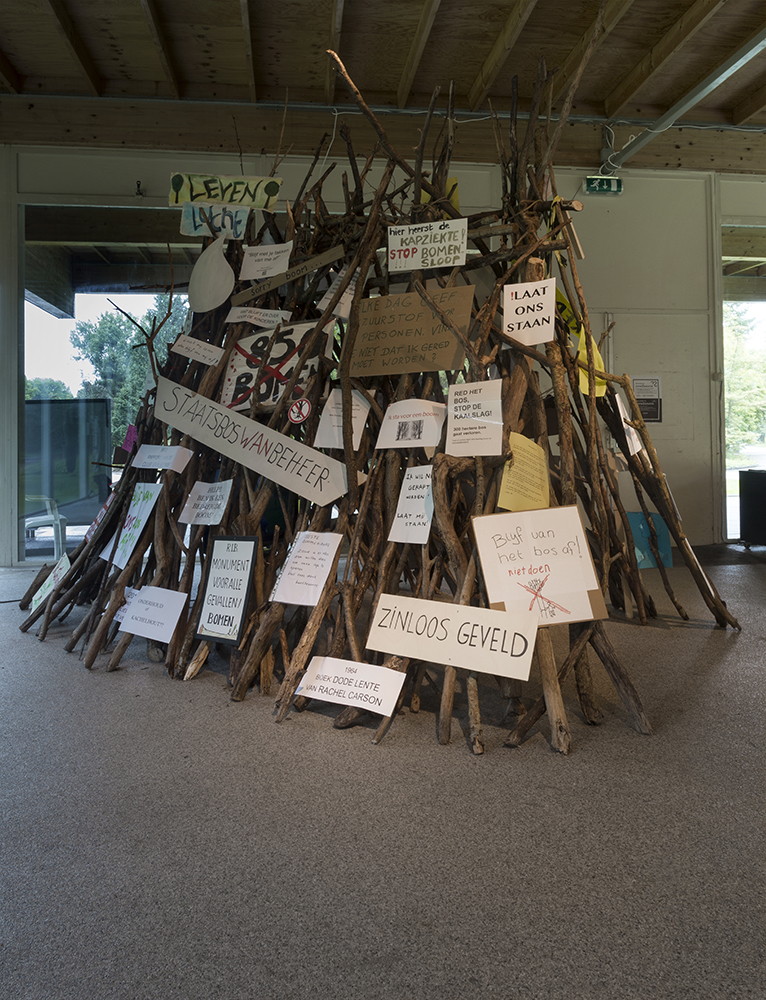Wouter Osterholt
The work of Wouter Osterholt is part of Exploded View
Growing Resistance
An ecological disaster exercise in the Amstelpark, Amsterdam
The Amstelpark emerged from the large-scale horticultural exhibition the ‘Floriade’ which took place in 1972, which attracted many enthusiastic visitors. But there was also criticism, such as from the action group ‘De Lastige Amsterdammer’, who described the exhibition as “Poen-Groen behind a fence on the edge of a for many unlivable city”. They found that the 5 million guilder subsidy could have been better spent, for example, by improving the quality of life in the city center. It was a critique that followed the changing spirit of the time. The sixties and seventies were characterized by an increasing awareness of their own living environment and the increasingly serious environmental problems, which were fueled by the alarming report of the Club of Rome, ‘The Limits to Growth’ from 1972.
Much has changed after the hype of the Floriade, and yet the above description is still characteristic of the Amstelpark, which is hidden as a kind of Arcadian landscape behind a large fence in order to ward off threats from the outside. For example, cycling is prohibited and the strict supervision of park rangers ensures that nothing can take place off the beaten track. Park management is taken so seriously that artists who want to work in the monumental exhibition park are forbidden to fix objects in the ground or in the trees. The entire park is treated as if it were a museum object. The ‘Growing Resistance’ project will temporarily disrupt this false security by allowing a fictional threat in the form of an urban development in which all trees and shrubs must be cut down. In this doom scenario, local residents and other involved parties revolt and there is a resistance against the plans of the municipality. The idea is to make a documentary about what these protest actions could look like, based on actions organized in the Netherlands in the past 50 years in the context of large-scale deforestation and small-scale local tree felling.
The reconstructions are carried out in collaboration with a local theater association at various locations in the Amstelpark. Before the film days, an archive will be created of the many actions that have taken place in the Netherlands in recent years. This extensive collection will serve as source material for the staged situations. The script will be compiled on the basis of interviews (mostly from regional television channels) in which the conversations are literally reconstructed. The ‘Groeiend Verzet’ project involves a visual investigation into the aesthetics of the protest over the years; from improvised actions by emotional citizens to strategically planned manifestations of political parties. Tree felling seems to have become a hot topic in provincial and municipal politics. The threatened tree has become a political subject and increasingly shows the concern of the angry citizen in a rapidly changing world, where climate change is often a rather abstract and invisible phenomenon, while a tree is in its own environment and forms a tangible link with the (threatened) natural world.
Wouter Osterholt (1979, Leiden) lives and works in Berlin and studied at the Rietveld Academy, where he obtained his Bachelor in Fine Art in 2001. His work is context specific and often manifests itself as strategic interventions along the ‘fault lines’ and ‘fault moments’ of the local (political) landscape, where social inequality, conflicts or problems come to light. In doing so, he uses a method of recontextualising existing visual material, such as buildings, monuments, sculptures, rituals and archive material. By interacting with casual passers-by and those directly involved, he tries to discuss politically sensitive subjects. As a result, the projects often take the form of a discussion platform and meeting place, in which ‘participants’ are stimulated to determine their own position.
More info see: http://www.wouterosterholt.com/



